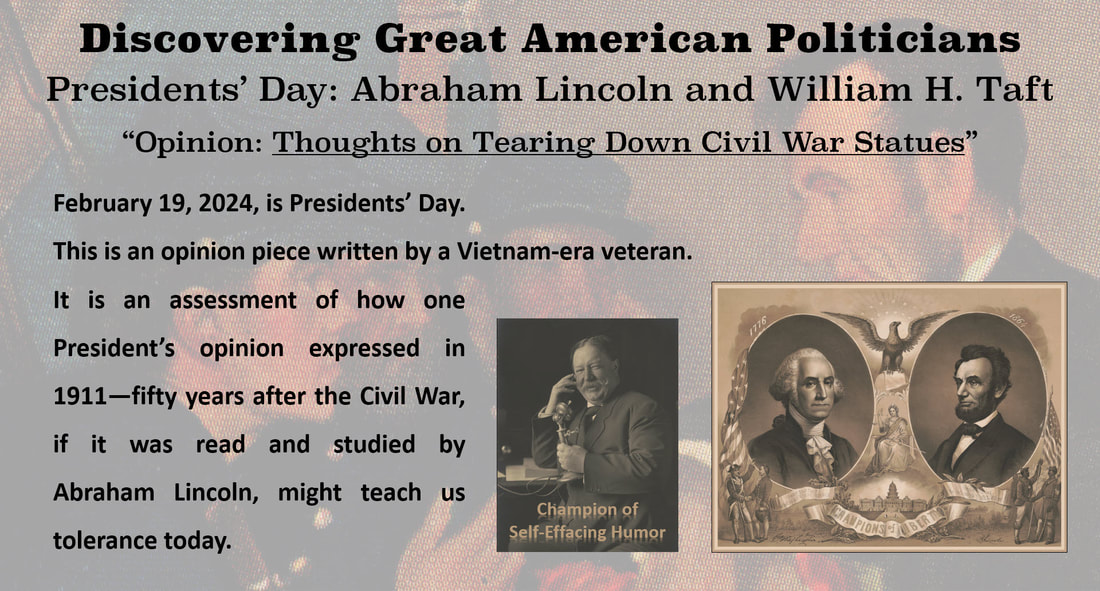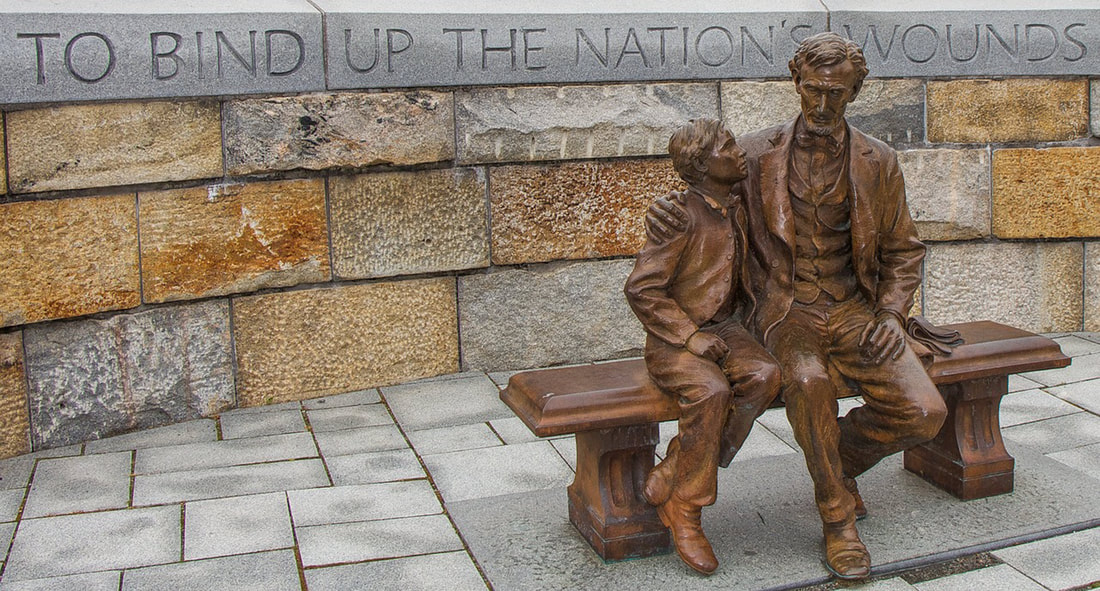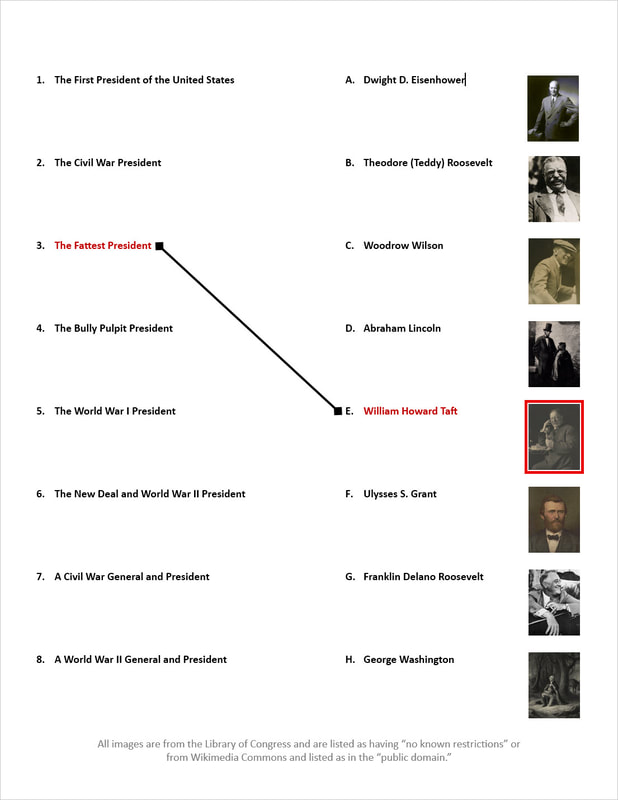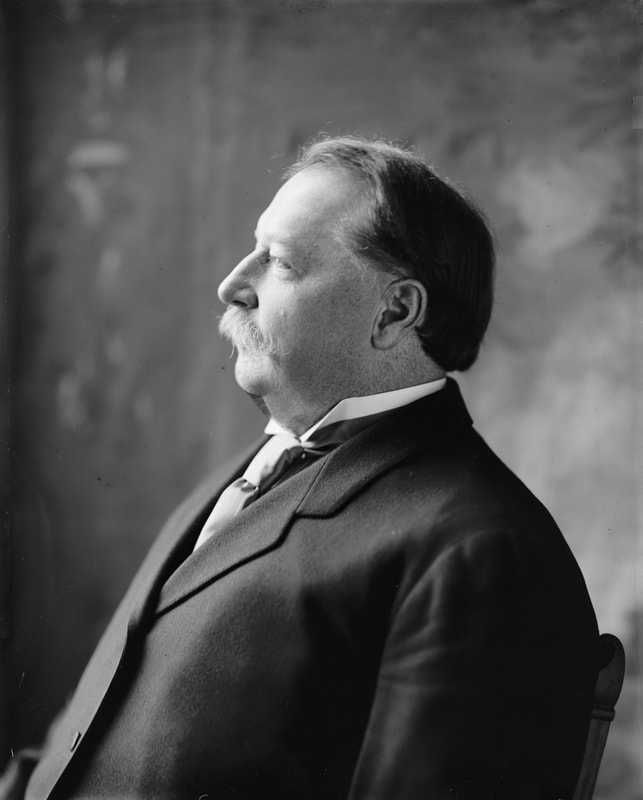Presidents' Day 2024: Civil War Insight from Lincoln and Taft
|
|
Date Published: February 2, 2024
Date Modified: February 16, 2024 |
February 19, 2024 is Presidents’ Day.
This is an opinion piece written by a Vietnam-era veteran. It is an assessment of how one President’s opinion expressed in 1911—fifty years after the Civil War, if it was read and studied by Abraham Lincoln, might teach us tolerance today in how we are addressing our attitudes towards our deceased Civil War veterans—the veterans of both the North and South.
Maybe President William Howard Taft has a point that the President who gave his life for our country would understand.
This is an opinion piece written by a Vietnam-era veteran. It is an assessment of how one President’s opinion expressed in 1911—fifty years after the Civil War, if it was read and studied by Abraham Lincoln, might teach us tolerance today in how we are addressing our attitudes towards our deceased Civil War veterans—the veterans of both the North and South.
Maybe President William Howard Taft has a point that the President who gave his life for our country would understand.
Peter E. Greulich, Vietnam-era Veteran
Presidents Day 2024: Lincoln and Taft's Civil War Lesson in Political Integrity
- William Howard Taft Honors Our Civil War Veterans in 1911
- What if Abraham Lincoln—Our Civil War President, Studied Taft’s Introduction
- A Few Thoughts on History’s Perception of President Taft
- Thoughts on Our Presidential Candidates and President Taft
William Howard Taft Honors Our Civil War Veterans in 1911
President Taft's Introduction to "The Photographic History of the Civil War in Ten Volumes" in 1911
THE WHITE HOUSE
Washington
Washington
|
We have reached a point in this country when we can look back, not without love, not without intense pride, but without partisan passion, to the events of the Civil War.
We have reached a point, I am glad to say, when the North can admire to the full the heroes of the South, and the South admire to the full the heroes of the North. There is a monument in Quebec that always commends itself to me – a monument to commemorate the battle of the Plains of Abraham. On one face of that beautiful structure is the name of Montcalm, and on the opposite side the name of Wolfe. That always seemed to me to be the acme of what we ought to reach in this country; and I am glad to say that in my own alma mater, Yale, we have established an association for the purpose of erecting within her academic precincts a memorial not to the Northern Yale men who died, nor to the Southern Yale men who died; but to the Yale men who died in the Civil War. William H. Taft, President
|
What if Abraham Lincoln—Our Civil War President, Studied Taft’s Introduction
"Best Lincoln Stories: Tersely Told" by J. E. Gallaher, 1889, pp. 49–50
There is a story told of Abraham Lincoln.
It goes something like this.
It goes something like this.
|
During an interview, the President commented how much he felt the need to read and what a loss it was for an individual to not grow up reading and the study of books.
The reporter commented: “Men of force can get on pretty well without books. “They do their own thinking instead of adopting what other men think.” |
Lincoln Memorial in Richmond, Virginia
“To Bind Up the Nation’s Wounds.” |
The President pondered for a moment … and then responded:
“Yes, but books serve to show a man that those original thoughts of his aren’t very new, after all.”
If President Lincoln were alive today to read the above Introduction to “The Photographic History of the Civil War” written by President Taft in 1911, I believe one of our greatest Presidents would augment his thought in this story. He understood better than anyone who and what caused our Civil War, and he would, in his exquisitely quiet, insightful, and uncommonly pensive way add:
“Reading also informs the citizenship of a nation when ‘men of force’ are on the wrong path.
“Specifically, paths paved with political partisan passions.”
If only we had a President—or a selection of candidates striving for the Office of the President of the United States—of the caliber of a Lincoln or a Washington, or if we pushed ourselves hard enough to understand our own history through reading, studying, and writing about the character of those who laid the foundations of our great country, we would find or call forth our century’s Washington, Lincoln—or Taft. Unlike in an autocracy, we who live in a democracy have only ourselves to blame for those we support, encourage, and place in office, don’t we? As we say in Texas: “When you point a finger at someone else, you have three fingers pointing back at yourself.”
Once again it is on us to resurrect from amongst us an individual with the spirit of a Washington, the character of a Lincoln, or—if you as an individual can’t aspire that high, the openness of a Taft. An individual with a spirit that is humble, quiet, reflective, yet full of an educational expressiveness that inspires within us—their constituency, an uncommon insightfulness.
I still believe in my fellow countrymen and -women.
Read … Study … THINK!
Vote.
“Yes, but books serve to show a man that those original thoughts of his aren’t very new, after all.”
If President Lincoln were alive today to read the above Introduction to “The Photographic History of the Civil War” written by President Taft in 1911, I believe one of our greatest Presidents would augment his thought in this story. He understood better than anyone who and what caused our Civil War, and he would, in his exquisitely quiet, insightful, and uncommonly pensive way add:
“Reading also informs the citizenship of a nation when ‘men of force’ are on the wrong path.
“Specifically, paths paved with political partisan passions.”
If only we had a President—or a selection of candidates striving for the Office of the President of the United States—of the caliber of a Lincoln or a Washington, or if we pushed ourselves hard enough to understand our own history through reading, studying, and writing about the character of those who laid the foundations of our great country, we would find or call forth our century’s Washington, Lincoln—or Taft. Unlike in an autocracy, we who live in a democracy have only ourselves to blame for those we support, encourage, and place in office, don’t we? As we say in Texas: “When you point a finger at someone else, you have three fingers pointing back at yourself.”
Once again it is on us to resurrect from amongst us an individual with the spirit of a Washington, the character of a Lincoln, or—if you as an individual can’t aspire that high, the openness of a Taft. An individual with a spirit that is humble, quiet, reflective, yet full of an educational expressiveness that inspires within us—their constituency, an uncommon insightfulness.
I still believe in my fellow countrymen and -women.
Read … Study … THINK!
Vote.
A Few Thoughts on History’s Perception of President Taft
In grade school multiple-choice matching tests, President William Howard Taft was always connected to “The Fattest President.” There is more to his story than his just being fat.
Here is what Mark Sullivan wrote in Our Times of our former president in his outstanding six-volume set about the growing pains of the United States of America in the first twenty-five years of the twentieth century.
Here is what Mark Sullivan wrote in Our Times of our former president in his outstanding six-volume set about the growing pains of the United States of America in the first twenty-five years of the twentieth century.
|
“The country liked Taft.
“They made infinite jests about his fatness—and no one heard or repeated the jokes with greater savor than Taft himself. . . . "Making a speech he would pause, with an effect of suspense, just long enough to intensify the audience’s attention; then throughout the immense torso and up into the broad features would run little tremors and heavings … rising to a climax in a rumbling chuckle as infectious as only a fat man could achieve, and Taft would tell a story in which the point was, as he would say in an engaging falsetto, ‘on me.’ “While he was in the Philippines, disturbing reports about his health caused Secretary of War Root to send a cabled inquiry. Taft cabled back that he was perfectly all right—he had just finished a twenty-five-mile horseback ride and was feeling fine. "Secretary Root read that, smiled, and sent off another cable of solicitude: ‘How is the horse?’ |
President Taft was the "Fat One" on matching tests. He really was the "Champion of Self-Effacing Humor."
|
“Justice Brewer of the Supreme Court [Taft was a U. S. Supreme Court Justice] said that ‘Taft is the politest man in Washington; the other day he gave up his seat in a street-car to three ladies.’ All the jokes that have been made about fat men since Shakespeare invented Falstaff were brought from their ancient closets and stretched to fit Taft’s ample form.
“New ones emanated from Taft himself. A lady calling on him in the interest of her son’s career in the army, had received the assurance she wished, and, departing, said, as the highest feminine conception of showing appreciation: ‘Mr. Taft, you’re really not near so fat as they say you are.’
“New ones emanated from Taft himself. A lady calling on him in the interest of her son’s career in the army, had received the assurance she wished, and, departing, said, as the highest feminine conception of showing appreciation: ‘Mr. Taft, you’re really not near so fat as they say you are.’
|
“He was fat, but he had the frame that carries weight with an effect of majesty, of the sort that primitive men, and even modern men in the average, like to see in their kings and leaders. ‘He looks,’ said Arthur Brisbane at this time, ‘like an American bison, a gentle, kind one.’
“People thought of Taft’s tonnage as they think of the Leviathan, [Leviathan was the largest ship in the world at the time] something that makes for substance and dependability and does not interfere with efficiency. “Confidence and affection attended him everywhere. He was regarded as good medicine; at once a tonic and sedative, good for the national nerves. Old-fashioned people liked to think of him as a man who probably said his prayers. “Frederick Palmer called Taft’s laugh ‘one of our great American institutions.’ ” |
President William Howard Taft
|
Mark Sullivan, Our Times, Volume III, pp. 14-15
An Opinion on Democracy, President Taft, and Our 2024 Presidential Candidates
Of course, I would love for my fellow electorate to help me call forth another leader of the likes of an Abraham Lincoln or a George Washington, but first, just maybe, we need to get back on the right track. We need an individual seeking the Presidency who carries themselves and their political weight with a self-deprecating sense of humor. A candidate who the nation’s electorate—as a majority, regards as good medicine—a sedative that is good for the national nerves.
Maybe for Presidents’ Day 2024–25 we don’t need a Lincoln or a Washington.
We could easily move our democracy forward with a Taft.
Someone who knows how to laugh—at themselves …
And lead without partisan passions.
Maybe for Presidents’ Day 2024–25 we don’t need a Lincoln or a Washington.
We could easily move our democracy forward with a Taft.
Someone who knows how to laugh—at themselves …
And lead without partisan passions.



